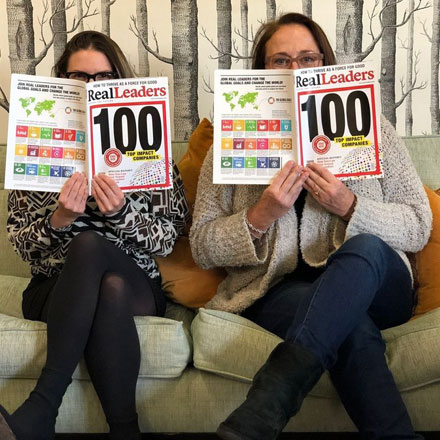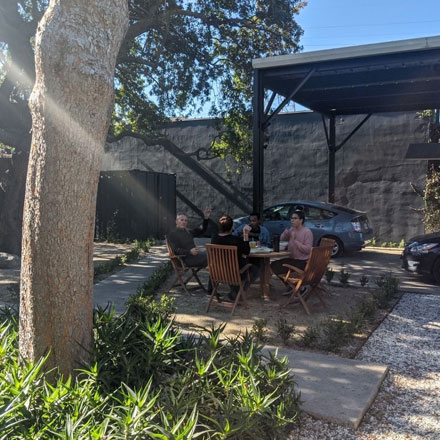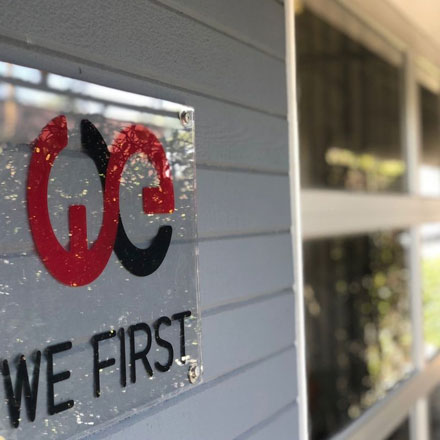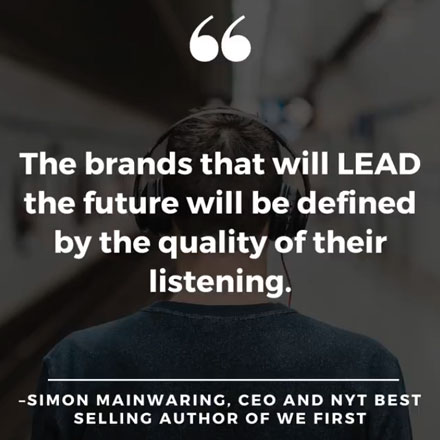
Purpose At Work
Telling A New Story About The Global Housing Crisis
About 10 years ago, when Brett Hagler was only 24 and relatively unfamiliar with the facts on the ground in the developing world, he took his first trip to Haiti. There he saw firsthand the terrible challenges and choices occasioned by a lack of adequate housing. “Obviously, Haiti, it’s a very dramatic, arresting example,” says Hagler.
But across the world, some 1.8 billion people, especially women and children, are unable to reach their full potential because of the global housing crisis. And the problem is growing.
Inspired by his friend, the celebrated social entrepreneur, Scott Harrison, founder and CEO of charity: water, Hagler, a graduate of FSU’s College of Business, decided to do something practical about the housing challenge. He and a couple of co-founders “got started at a pretty young age, so we didn’t let all of these big, unanswered questions paralyze us from getting started.”
New Story Homes began where Hagler first encountered the magnitude of the housing problem — in Haiti. It became one of the first nonprofits to get accepted into a seed money start-up accelerator Y Combinator class, where Hagler graduated with three co-founders in 2015. The group brought tech, transparency, and top-tier biz practices to the housing crisis. Since then, New Story has evolved its pioneering solutions to inadequate housing by empowering families to buy land, secure home financing, and build generational wealth.
At Home with an Ambitious Mission
Says Hagler, “the way we describe the vision is just envisioning a world where everyone can access adequate housing. Every person understands the importance of housing, right? It’s one of life’s most basic human needs. There are very important data and measurements, and those are things that really matter.”
“But from an anecdotal standpoint, it just made a lot of sense that housing is so fundamental and such a pillar, it enables a lot of other basic life needs. It (unlocks) human potential. Education, healthcare, income: These are all extremely important,” says Hagler. “But if you don’t have the foundation of an adequate home, all those other things become much more difficult.”
Since its founding, New Story has raised $80+ million and impacted 20,000+ with housing, mostly in Haiti, El Salvador, and Mexico (where there’s massive inequity and a worsening climate emergency that translates to an expanding housing crisis).
Along with an impressive cadre of top expert advisers, such as those from Kiva, Trulia, DocuSign, Glassdoor, and the aforementioned charity: water, New Story has evolved its innovative market-based approach over the past decade. Hagler explains:
“That was one of the things that we learned by doing. You could very easily start doing math on how much money it takes to help that many people. And you very quickly see a lot of commas — it gets into the trillions. And then you realize that philanthropy is not going to make a dent in that problem because it’s too expensive and it’s too big,” says Hagler.
In fact, the annual supply of charitable giving in the US is only around $500 billion for all causes.
“Then you look at about $270 trillion of investable assets around the world [the amount needed to meet net-zero targets by 2050, according to a Swiss Re Group study used since the UN’s COP27 conference in 2022]. So, how can we try to help families be part of that asset class? Because that’s where all the capital is,” Hagler says.
A Model to Allow the Underserved to Join the Investment Class
“We understood and realized that for such an expensive problem and if we’re very serious about helping millions of people, we have to create models that enable this massive underserved market to participate in this investable asset class.”
“There is so much more opportunity and so much leverage in a model that is more market-based,” says Hagler. “And that’s not easy, but we genuinely feel it’s the only viable option. Because the problem is just too big.”
So, New Story intends to be the best in the world at demonstrating how market-based solutions can work for vulnerable families, and then grow that model to other parts of the world. By the way, “market-based” essentially means that New Story now partners with local developers and municipalities to create solutions that are both affordable for needy families — and profitable for providers. The goal betters the overall economy in a given area, in addition to building equity for individual families.
This process, in turn, leads to economic impact that can span generations — equipping families to build wealth and break the poverty cycle — an assumption many in the developed world can take for granted. Though, of course, Hagler recognizes that the global housing crisis affects millions in the US, also.
The New Story is to use the market to drive more opportunities for the inadequately housed. It’s doable, says Hagler and his partners. It’s bankable. It’s sustainable. It’s scalable. And, ultimately, it will make a big dent in what many have traditionally assumed is simply too big and too intractable a problem.
And, “It all started with one house,” Hagler reminds would-be social entrepreneurs. The company could have spent years researching, compiling, and thinking without doing. Instead, they built one house in Haiti. Then another. Then a community of 3D printed homes …”
Today, New Story’s on target to meet its goal of impacting 1 million people in Latin America people by 2030.





